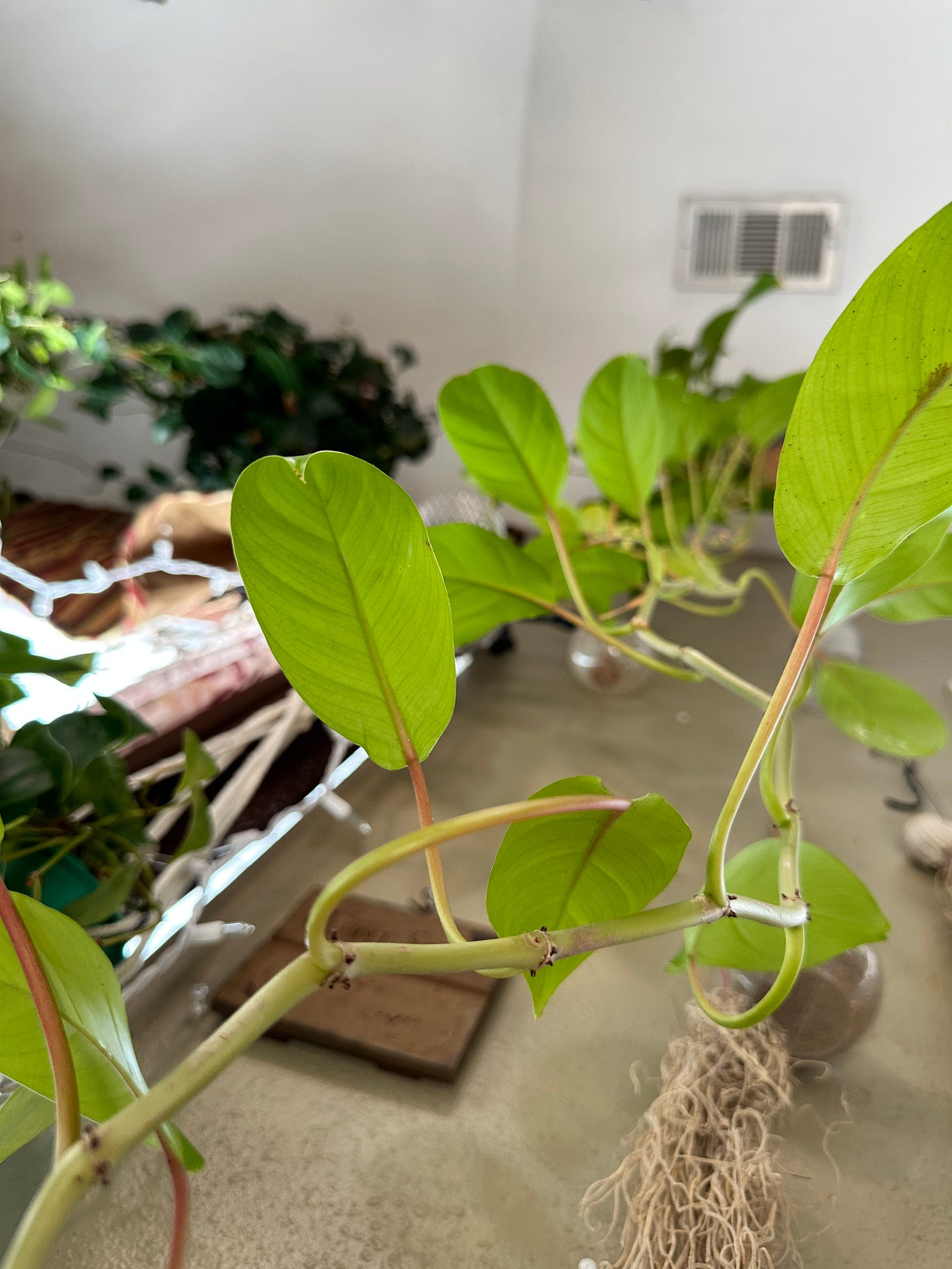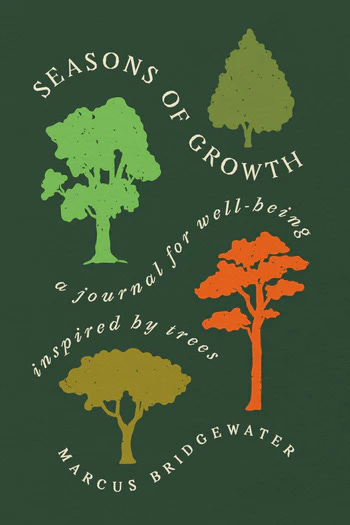Love isn’t something I take lightly. If I were to try loving less, the only option would be to stop loving at all.
With hundreds of plants in my care, I am surrounded by love. I love my plants, and they love me back. I see it in the way they grow and respond to my dedication. There is no doubt in my mind that plants, like all the life around us, can sense the way we regard them, and I’ve spent years pouring myself into the plant oasis I’ve designed in my house.
I know I’ve put myself in the position to have my love tested by collecting and propagating hundreds of houseplants, the majority of which are native to the warm wet tropics. My indoor house, with its walls, stale air, and lack of wildlife, doesn’t boast the conditions they are accustomed to. But, I do my best to foster an environment where thriving is possible because I desire to live as close to nature while residing in the suburbs.
When a plant suffers, I’m anguished — not only by its poor state of being, but because of the responsibility I feel in keeping my plants well. Signs of decline can often be signs of my neglect, and I feel like a failure for allowing a lack of hydration or infestation to befall them.
One of my most frequently asked questions is how I care for so many plants. How do I make time for it? How do I know when to water? How do I know which to water? For those who haven’t lived it, the task is daunting and unimaginable. For years, I had a solid routine and I managed my plant temple without trouble.
Two things happened to throw me off course.
I had a son
I unknowingly brought an infested plant into my house
The first shift brought changes to my priorities and my routine, and things began to stack up. I’d look at my planner and realized I was a week late to getting a chore done, adding to the growing list of things to do. I’d see a thirsty plant and get caught with a distraction, and notice a few days later I still hadn’t watered it.
I didn’t know about the infestation when I placed the plant in my home, and it was too late by the time I found it. Nearly a year later, that plant has since gone outside, and I’m still finding infestations in other plants. This has created more chores, more side quests, more things for me to tend to on top of my existing to-do list of work, chores, and parenting.
The growing toll of infestation-related plant chores, the emotional tax of loving the plants in my care, and the consequential grief of losing so many of those same plants is stacking up.
I’ve lost an estimated 70 plants this past year to lack of attention, infestation, or frost.
Some of them were plants I haven’t seen anywhere else or have only crossed once, and they came into my care as gifts from friends. As those losses started to stack up, I could feel the anguish build, creating a type of guilt I started to carry. A dark cycle began: Every time I crossed a space where one of these beauties used to reside, I resented myself. The next thing I knew, I had negative dialogue in my head. I began to hold the infestations, frosts, all my distractions against myself.
But what did I gain by thinking this way? How did I benefit from putting so much judgement on myself? I gained nothing, and the negativity stunted my growth.
A reminder of loss can be jarring, be it a plant, pet, or person. Loss brings a heavy weight, a tax on the spirit. The same can be said for a long list of never ending chores that only ever seem to add up. Parenting can be exhausting, and when we are fatigued, it’s easy to let the little things turn into big things. One more loss can feel like the end of the world. One more chore can feel like the world is against you.
As I lamented my recent losses and my failures, my wife asked me if I had stopped to consider the things I had to be grateful for and things I had done to be proud of. It came to my awareness that my focus had remained on my shortcomings and lost plants. With each loss, it became harder for me to think of the plants that were thriving in my care. My accomplishments lived in the shadows of my failures.

Now I have clarity, and I can see that I stunted my growth by where I placed my focus.
I’ve resolved to adjust my routine so my plants will not be neglected — many of them now live outside. Taking time to celebrate my wins and remember what I have to be grateful has made it easier to learn from my mistakes and focus on my growth, so I can better support the growth of those around me.
I still mourn the losses and wish I’d been more present for my plants, but the experience has catalyzed change in my mindset and my routine so I can better manage my responsibilities going forward. Instead of letting the 70 plants become a driving force of negativity in my life, the things to consume all my focus, I am deliberate in reminding myself of my son and my wife, my accomplishments, and all the amazing adventures ahead of us.
In forgiving myself, I’ve allowed myself to love freely again. It feels good to grow.
This video is two years old (pre-baby), but still gives a good idea of what my house of plants looks like.
Join me in SEATTLE February 22-23 for The North West Flower and Garden Festival! I’ll be leading and participating in events throughout the weekend, including a book talk, meditation, four plant AMAs, and a container planting showdown!
Preorder my children’s picture book SEE MARCUS GROW!
Read my personal growth book inspired my plants HOW TO GROW: NURTURE YOUR GARDEN, NURTURE YOURSELF
Check out my guided journal SEASONS OF GROWTH: A JOURNAL FOR WELL-BEING INSPIRED BY TREES
Book me as a speaker for your next event! I’m experienced in speaking for corporate events, conferences, schools, universities, nonprofits, and more.











Thank you for this much needed reminder today - there is a tree in one of the yards in the retirement complex I live in that I have fallen completely in love with - everytime I walk by, which is almost daily, I touch the branches and quietly tell it thank you. There's a palpable energy exchange that reminds me of how connected we are with all of life. Deep gratitude to you 🙏
This is a great reminder for me. I have a plant that I’ve had almost 20 years—the offspring of the original plant’s offspring, gifted back to me after root rot attacked to original. I looked at it this morning and felt frustrated that I hadn’t better cared for the original. Now I’m rethinking that-reflecting on how the original aloe birthed so many babies it lives across multiple states and even in another country. That I can always find one from that family.